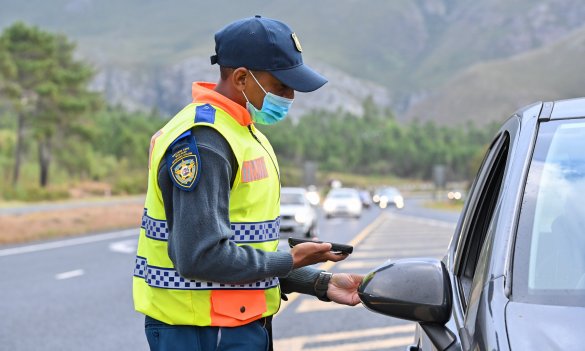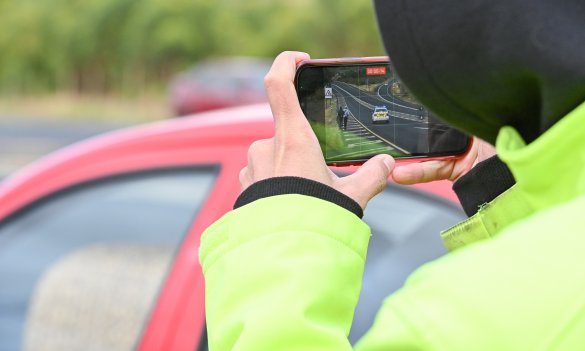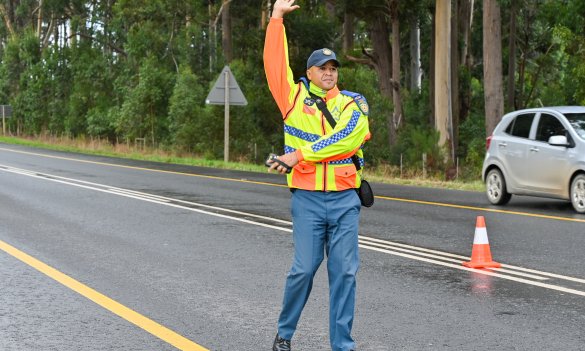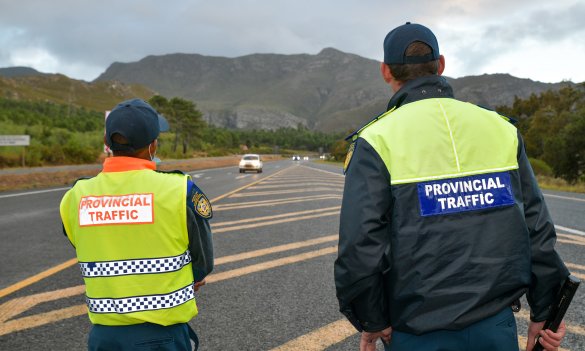Western Cape Provincial Traffic Services implemented a total of 279 integrated roadblocks, vehicle check point and speed control operations across the province in the week of 16 to 22 May 2022, and 28 575 vehicles were stopped and checked.
A total of 277 speeding offences were recorded and 6 791 fines were issued for various traffic violations ranging from driver to vehicle fitness. Sixty-one vehicles were impounded and 102 were discontinued for unroadworthiness.
Speeding is a serious concern. The faster you drive, the less time you have to respond to an emergency and the more space you need to stop to avoid a crash. Speeding is irresponsible and dangerous.
The highest speeds recorded this week were as follows:
- 162 km/h in a 120 km/h zone
- 144 km/h in a 100 km/h zone
- 119 km/h in a 80 km/h zone
- 104 km/h in a 60 km/h zone
National Road Traffic Act and Criminal Procedure Act
A total of 148 arrests were made for the following offences:
- 40 x driving under the influence of alcohol.
- 3 x speeding.
- 2 x reckless and negligent driving.
- 1 x goods overloading
- 65 x possession of fraudulent documentation.
- 35 x undocumented persons.
- 2 x bribery.
Fatalities recorded between 16 and 22 May 2022
A total of 14 crashes occurred in the reporting period, and 14 fatalities were recorded:
- 2 x motorcyclists
- 4 x drivers
- 2 x passenger
- 6 x pedestrians
No text or call is worth your life – it can wait
“Taking your eyes off the road for any reason while you are driving is extremely dangerous. Distracted driving is one of the leading causes of crashes that kill people and leave them seriously injured,” says Vigie Chetty, Acting Director: Traffic Law Enforcement. “Never look away to answer a call, check a message or adjust the music – it’s like driving with your eyes closed. Even talking, eating or drinking can take your attention away from driving safely. No text or call is worth risking your life or the life of others – it can wait,” she adds.
Distracted pedestrians are a danger to themselves to and to other people on the road. Only walk where it is safe to do so. Wear visible clothing, especially at night. Motorists can only avoid you if they can see you. When you cross a road, pay careful attention to the traffic. Take off your earphones or headphones so that you can hear oncoming traffic. If you have been drinking, avoid walking near a road. Find a safer way to get home.
Never drink and drive. Even small amounts of alcohol can affect your judgement as a driver or a cyclist. Do not drive or cycle when you have been drinking. Make other arrangements to get home. If you are stopped by a traffic law enforcement officer and the officer suspects that you are over the legal limit, you will be arrested. If you are convicted of driving under the influence of alcohol, you will have a criminal record.
Driving tired is as dangerous as driving drunk. The urge to sleep can distract you from driving safely. If you are tired, pull over and rest. On a long journey, plan to take rest breaks in safe places every two hours or 200 km.
If you drive a public transport vehicle, be extra careful throughout your journey. Ensure the safety of your passengers at all times. If you experience a breakdown, never allow your passengers to get out of the vehicle into the roadway because this will endanger their lives. Make sure your vehicle is roadworthy and that your operating licence is in order. Ensure that you and all occupants are wearing a mask over their noses and mouths, and sanitising regularly.
The Department of Transport and Public Works uses electronic systems to monitor public transport vehicles, drivers, and trips. The details of operating licences are available to traffic officers in real time. Tired drivers will be pulled off and made to rest before they resume their onward journeys.
Never speed. Speeding drivers risk the lives of the people in their vehicles, and the lives of others. It is best to travel slowly and carefully. It’s the only way that you will be able to react to emergencies in time. If a vehicle travelling at only 60 km/h crashes, a 55 kg person without a seatbelt will experience an impact of over 19 000 kg! With a seatbelt, the force will be about 3 800 kg.
No text or call is worth your life – it can wait.
Media enquiries
Jandré Bakker
Head of Communication
Department of Transport and Public Works
Email: Jandre.Bakker@westerncape.gov.za




